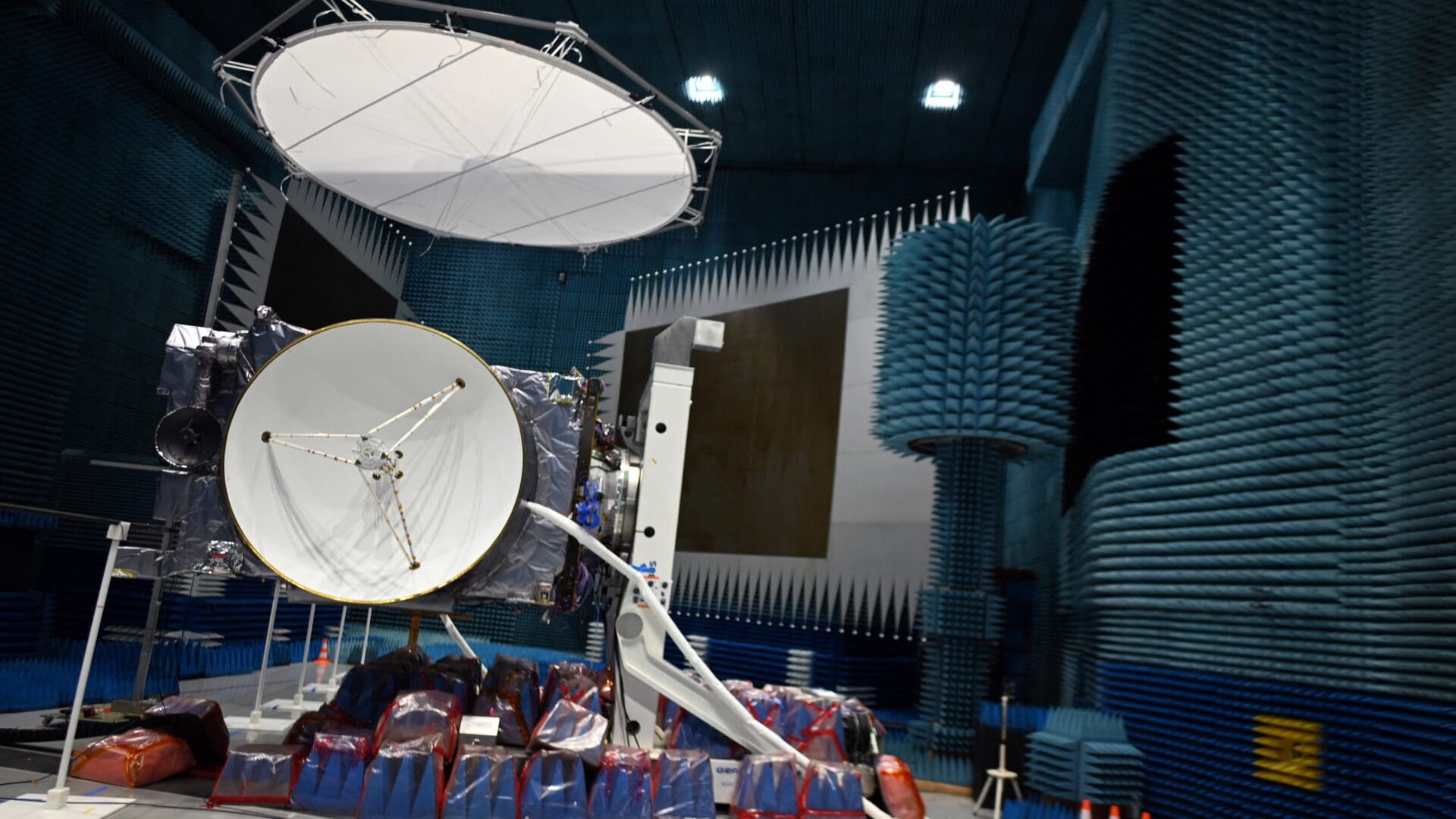The Hungarian Astronomical and Geophysical Research Centre (HUN-REN CSFK) researchers are actively participating in the PRIDE (Planetary Radio Interferometry and Doppler Experiment) experiment of the JUICE (Jupiter Icy Moons Explorer) mission. PRIDE utilizes the on-board radio communication equipment to observe the radio signals emitted by the spacecraft using ground-based radio telescopes. This initiative aims to enhance the scientific utilization of data from planetary exploration spacecraft like JUICE. A comprehensive overview of the experiment was recently published in the prestigious Space Science Reviews journal.
JUICE represents one of the European Space Agency’s (ESA) pivotal interplanetary missions.
Launched towards Jupiter in April 2023, the spacecraft has successfully undergone its commissioning phase.
The mission’s objective is to conduct detailed observations of Jupiter and its complex environment, focusing particularly on three major Galilean moons: Europa, Ganymede, and Callisto. These celestial bodies are unique and intriguing worlds in their own right, harbouring liquid oceans beneath icy crusts. Following a meticulously planned eight-year journey, including four gravity-assisted manoeuvres near Earth and Venus, JUICE is slated to arrive at Jupiter in the summer of 2031.
After entering orbit around the giant planet, it will perform a total of 35 close flybys of the three icy moons. Finally, by the end of 2034, the spacecraft will use its thrusters to decelerate and enter orbit around Ganymede, allowing for a more detailed study of the moon’s surface, composition, and magnetosphere.
JUICE is equipped with a diverse array of instruments suitable for various remote sensing, geophysical, and on-site measurements. With cameras, spectrometers, radar devices, a laser altimeter, as well as instruments for studying magnetic, radiation, and particle environments, JUICE can rightfully be called the ‘Swiss army knife’ of planetary exploration.
The spacecraft was developed through extensive international collaboration, involving Hungarian research institutions and contributions from the domestic space industry.
In addition to the ten on-board instruments, the multi-purpose PRIDE serves as a kind of ‘bonus experiment’ within JUICE’s scientific programme. It contributes to the mission’s scientific utilization without requiring a specifically designed on-board instrument. Researchers observe the radio signals emitted by the spacecraft using ground-based radio telescope networks, employing the Very Long Baseline Interferometry (VLBI) method to precisely determine the spacecraft’s celestial position in the reference system designated by distant radio-emitting active galactic nuclei (quasars).
Another mode of PRIDE measurement involves studying the Doppler shift in the frequency of radio signals, providing insights into the line-of-sight velocity of the spacecraft. PRIDE measurements find applications in various research areas, including planetary atmosphere studies through radio signal analysis, accurate determination of the orbits of planets and moons, characterization of celestial bodies’ gravitational fields and geodetic properties, and exploration of the characteristics of interplanetary plasma.
The (EVN) recently approved an observational proposal submitted under Hungarian leadership, focusing on the preparation of measurements to be conducted during the gravitational swing-by manoeuvre of JUICE near Venus. The objective is to search for celestial radio sources closest to the spacecraft's celestial orbit, currently unknown, to maximize the scientific yield of PRIDE observations well before the spacecraft reaches its ultimate destination, Jupiter and its moon system.
Related articles:
Source: Hungarian Conservative/HUN-REN







